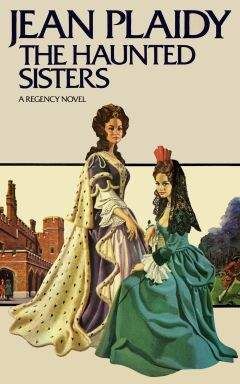Jean Plaidy - Mary, Queen of France: The Story of the Youngest Sister of Henry VIII
На сайте mybooks.club вы можете бесплатно читать книги онлайн без регистрации, включая Jean Plaidy - Mary, Queen of France: The Story of the Youngest Sister of Henry VIII. Жанр: Прочее издательство неизвестно,. Доступна полная версия книги с кратким содержанием для предварительного ознакомления, аннотацией (предисловием), рецензиями от других читателей и их экспертным мнением.
Кроме того, на сайте mybooks.club вы найдете множество новинок, которые стоит прочитать.

Jean Plaidy - Mary, Queen of France: The Story of the Youngest Sister of Henry VIII краткое содержание
Mary, Queen of France: The Story of the Youngest Sister of Henry VIII читать онлайн бесплатно
It seemed to Henry then that God no longer favored him. He had lost his son; and now his own men had disobeyed him. He knew that Ferdinand was treacherous, and the fact that he was his own father-in-law did not soften that blow.
There was one way in which he could win back his self-respect. He himself was going to France.
Thus it was that in the May of the year 1513 he decided to lead his own army against the French.
The great cortège was on its way to Dover. An army of fourteen thousand men had already crossed the Channel and were awaiting the arrival of the King; and now Henry was setting out on the first great adventure of his reign.
He was determined that this should be a glorious occasion. He rode at the head of the cavalcade, his coat of gold brocade, his breeches of cloth of gold, his hose scarlet, and about his neck, on a chain of gold, a huge gold whistle encrusted with gems of great value. On this he blew from time to time.
The Queen and her ladies accompanied the party to Dover; and among this party was the Princess Mary, uneasy because Charles was going to war; and, although she loved the dazzling ceremonies before the departure, she hated the thought of the two men she loved so dearly going into danger.
The night before they sailed the four of them were alone together. Henry and his wife, herself and Charles; and she was envious of her sister-in-law who, like herself, was apprehensive, yet at the same time deeply content, because Katharine was pregnant and Henry was very affectionate toward her and had greatly honored her by making her Regent in his absence.
Lucky Katharine! thought Mary, who need make no secret of her fear and love.
Mary threw herself on her knees before her brother that night. “Henry,” she said, “you must take care, and not go into danger.”
Henry laughed aloud. “My dear sister, we are going to war. Would you have me hide behind the lines?”
“Why must there be this war?” demanded Mary.
“Come, come, that’s women’s talk. There must always be wars. We have a country to subdue. I promise you this: when I am crowned, you shall come to see the deed done.”
Mary murmured, her voice shaking with emotion: “Take care of each other.”
Then she turned away and stood at the window, staring out to sea.
Henry was studying Charles shrewdly. “Well, my Lord Lisle,” he said, stressing the title to remind Charles and Mary how the former had come by it, “my sister is deeply concerned for us. Methinks she loves us well.”
Then he smiled fondly at his meek wife who gave him no cause for anxiety. She would take charge of the realm while he was away, and on his return she might be holding their son in her arms.
Henry was delighted with his campaign. He joined his armies at Thérouanne where he found a timber-house with an iron chimney waiting to house him; and many tents were at his disposal, some of them as long as one hundred and twenty-five feet. It seemed possible to wage war in the utmost comfort, and when the Emperor Maximilian joined him, soberly clad in black frieze (for he was in mourning for his second wife), he came, he said, to serve under Henry as a common soldier. This delighted Henry and it did not strike him as strange that the seasoned old warrior should place himself in such a position. Inexperienced as he was, Henry believed himself to be godlike, as those surrounding him had been telling him he was, for as long as he could remember. So Maximilian, receiving a hundred thousand crowns in advance for the services of himself and his Lanzknechts, accepted pay (provided by Henry) like any soldier serving under his commander. Henry did not know yet that the Emperor wanted the capture of the twin towns, Thérouanne and Tournay, to facilitate trade for the Netherlands, and that he was ready to play the humble subordinate that they might be won at Henry’s expense.
And when the towns were taken—an easy conquest, for the French put up little resistance—and Henry wanted to go in triumph to Paris, Maximilian persuaded him to go with him to Lille and the court of his daughter, the Duchess of Savoy, where he could make the acquaintance of the Emperor’s grandson, Charles, who was betrothed to his sister Mary.
Henry was disappointed, and grumbled to his friends—Charles, Compton, Thomas Boleyn.
“Why,” he growled, “I had thought to go on to Paris, but it seems the Emperor does not advise it.”
Compton suggested that the French might put up more resistance for Paris than they had for those two border towns, and they had to remember that the autumn was almost upon them, and that the Emperor had warned them of the discomfort of Flanders’s mud.
Charles was overcome with a desire to see the boy who was betrothed to Mary and was not eager to continue with the war because, unlike Henry, he was beginning to see that Maximilian was not the friend the King so artlessly believed him to be; and it seemed that those two wily adventurers, Maximilian and Ferdinand, were of a kind, and their plan was to use Henry’s wealth to get what they wanted.
So he joined his voice to Compton’s, and Henry was not loath to be persuaded.
“I hear,” said Henry, “that the Lady Margaret is comely and eager to entertain us.”
The matter was settled. They would abandon war for the time being and give themselves up to pleasure in the Court at Lille.
The company was in high spirits. News had come from England that the Scots had been defeated at Flodden by what was left at home of the English army, and that James IV of Scotland had been slain.
Henry was jubilant even though James had become his brother-in-law by marrying his sister, Margaret Tudor.
“Never did trust a Scotsman,” he had often commented; and he was not displeased to have his doubts of them confirmed. For as soon as he had left England they had started to march against England. Well, they had learned their lesson. Conquests abroad; conquests at home; what better time for revelry?
And Margaret of Savoy had determined that there should be revels.
Margaret, twice widowed, was still young; being devoted to her nephew, the fourteen-year-old Prince Charles, who had spent much of his childhood with her, she was eager to learn something of the boy’s bride-to-be; and in any case it was always a pleasure to have an excuse for revelry.
When her father with his guests rode to the Palace she was waiting to greet them, her somewhat plump figure attired in regal velvet, her smile kindly; and with her was her nephew and the Emperor’s grandson, Prince Charles.
The boy was embraced with affection by his grandfather, then presented to Henry. Charles Brandon, standing behind his master, wondered if Henry was thinking the same as he was: Poor, brilliant, lovely Mary, to be given to such a weakling!
The boy’s picture, which Mary had come to loathe, had not lied; and he had changed little since it was painted. There were the prominent eyes and the heavy jaw, the mouth which did not close easily; there was the lank yellow hair, and the boy certainly seemed to have to concentrate with effort in order to follow the conversation.
And this was the greatest heir in Europe, the boy who would inherit the dominions of his Imperial grandfather Maximilian and his Spanish grandfather Ferdinand! The son of mad Juana!
Brandon’s indignation rose at the thought of Mary’s marriage.
Then he noticed that their hostess was smiling at him.
“My lord, Lisle,” she was saying in a soft and gentle voice, “it gives me great pleasure to welcome you to my Court.”
He took her hand and kissed it, and he fancied she lingered at his side just a little longer than was consistent with etiquette.
In the private apartment allotted to the King, Charles, with Compton, Parr and Boleyn, assisted at his toilet.
“The lady is not without charm,” commented Henry. “But the boy … ! It’s past my understanding how Max can feel so pleased with him.”
“He looks to be an oaf, Sire,” said Compton.
“Looks, man! He is. Did you notice how he stammered?”
“He has a great affection for his aunt and a respect for his grandfather,” added Thomas Boleyn.
“The boy’s in fear of his future, I’ll warrant,” said Henry. “He clings to auntie’s skirts, wanting to stay the baby forever. Ah! Has it occurred to you that Max won’t last long? He’s getting old. Ferdinand’s getting old. Then that boy will be one of the greatest rulers in Europe. Louis is no longer young; I hear he suffers from the gout and diverse ailments. But he’ll be of no account because France will be ours. That’ll put the long nose of that Dauphin of his out of joint. Dauphin! I tell you this, Francis of Angoulême will never mount the throne of France. There’ll be two monarchs standing astride the continent. The oaf and myself. I tell you, my friends, that gives me cause for great pleasure.”
“Your Highness will do with him what you will,” cooed Compton.
“So this is a happy day for me to see that young fellow with no more brains than an ass.”
“I am sorry for the Princess Mary.” Charles realized that he should not have spoken.
He had broken in on Henry’s pleasant reverie because he had reminded him of the Princess’s passionate pleas; and as Henry was fond of Mary, his pleasure in the apparent stupidity of Charles was spoiled by the reminder that his sister must marry the boy.
He frowned. “’Tis the fate of princesses to marry for reasons of State.” Then his jaw jutted out and he continued coldly: “Methinks, my lord Lisle, you concern yourself overmuch with this matter.”
It was a warning.
Margaret of Savoy having been twice widowed was no coy virgin and she was young enough to think now and then of another marriage, although her experiences of matrimony had scarcely been comforting. When she was three she had been betrothed to Charles VIII and sent to Amboise to be brought up to be Queen of France. But in order to link France with Brittany the marriage had been repudiated and Margaret sent back to Maximilian while Charles made a match with Anne of Brittany.
Later she had married the Infante of Spain, only to lose him and their child within a short time of their wedding. And after that she had married the Duke of Savoy, uncle of François, who was now Dauphin of France.
Her marriages seemed doomed not to last, for he too was dead and she once more a widow.
But she assured herself that did not mean that one day she might not find a husband with whom she could live in peace and pleasure. I have married for political reasons, she told herself; why should I not now marry to please myself?
When had this thought come to her? Was it when she had welcomed the King of England to her Court and found that his close friend was one of the most handsome men she had ever set eyes on? Before his coming she had been eager to meet him because her agent at the camp of Thérouanne, Philippe de Brégilles, had written to her of Charles Brandon. “Lord Lisle,” he had written, “is a man who should interest Your Grace, for he is at the right hand of the King; and it is clear that Henry listens to what he has to say.”
And now he had come to her Court she found him the most interesting member of the party.
It was not difficult to arrange that she should be next to him at table or in the dance; she began by pretending that she wanted to question him about the Princess Mary.
“I ask you, my lord Lisle,” she said, as he sat beside her while the minstrels played and the food was served, “because I see how fond the King is of his sister and I feel his account of her might be affectionately prejudiced.”
“The Princess Mary is deemed to be the loveliest lady at the English Court, and reports do not lie,” Brandon told her.
“Then I am glad. But tell me, is she gentle and kind? You have seen my Charles? He will be gentle and a little shy at first. I hope the Princess will be ready to discover his excellent qualities which are not apparent to all at first.”
“I am sure the Princess will be patient.”
“Tell me, is she eager to come to him?”
Charles hesitated. “She is young … she is uncertain. She loves her home and her brother.”
“Poor child! Life is difficult for royal princesses. I remember my own fate.”
“It has made Your Highness tolerant?”
“I try to be. I am so anxious for the boy to be happy. He is a good boy and he will be a great prince. You do not believe me? Why, Lord Lisle, I had thought you would be a man to look below the surface. Charles is slow of speech because he does not speak without thought. Have you noticed that when he does say something it is worth saying? Do not underestimate Charles, Lord Lisle. And you should warn the King of England not to.”
“I will do so, Your Highness.”
“I am sure you will. Tell me of England. I long to hear what the Court is like. I have heard it is quite brilliant since the young King came to power.”
He talked to her of the jousts and entertainments while she listened avidly.
And when he and the King’s gentlemen were in Henry’s bedchamber that night the King said: “Did you notice that the Archduchess seems mightily taken with our friend Charles Brandon?”
Compton had noticed it; he tittered, while Henry’s laughter burst out.
“Well, well, he’s a handsome fellow, our Charles. A little different from theirs. The lady noticed it, I’ll swear. Why, my lord Lisle, ’twould be a goodly match for you if you could marry Margaret of Savoy!”
“Your Grace is joking. The lady was asking me about your Court.”
“She had her eyes on me, but she said to herself ‘He’s well and truly married.’ So she turns to you. You know you are a little like me, Charles.”
“I have heard that said, Your Grace, and it has given me great pleasure. I fear I grow a little more vain every time it is repeated.”
Henry smiled affectionately at his friend. “Well, ’tis true enough. We might well be brothers, and I’d suspect we might be, but for the fact that my father was a man who never strayed from the marriage bed.”
“As was meet and fitting in so great a king,” murmured Charles.
Henry’s lip jutted out; he had found some of the women of this country tempting and, because he had assured himself that what he called a little gallantry was an essential part of a soldier’s life, he had succumbed to temptation. He did not like to be reminded of this.
“ ’Tis true,” he murmured, “that my father was a great King … in some ways.”
“He never had the people with him as Your Grace has,” Charles said quickly, realizing his mistake a few seconds before, and Henry’s expression was sunny again.
“The people like a king who is a man also,” he said. “They have a fancy for you, Charles … particularly the women. So ’tis small wonder that Margaret looks on you with favor.”
Henry changed the subject then, but he was thoughtful. His friends did not take Margaret of Savoy’s interest in Charles Brandon very seriously. The daughter of the mighty Emperor could scarcely marry an English nobleman whose only title was that which he had taken from his ward whom he had contracted to marry.
Похожие книги на "Mary, Queen of France: The Story of the Youngest Sister of Henry VIII", Jean Plaidy
Jean Plaidy читать все книги автора по порядку
Jean Plaidy - все книги автора в одном месте читать по порядку полные версии на сайте онлайн библиотеки mybooks.club.




